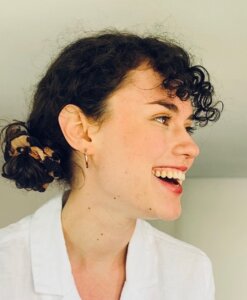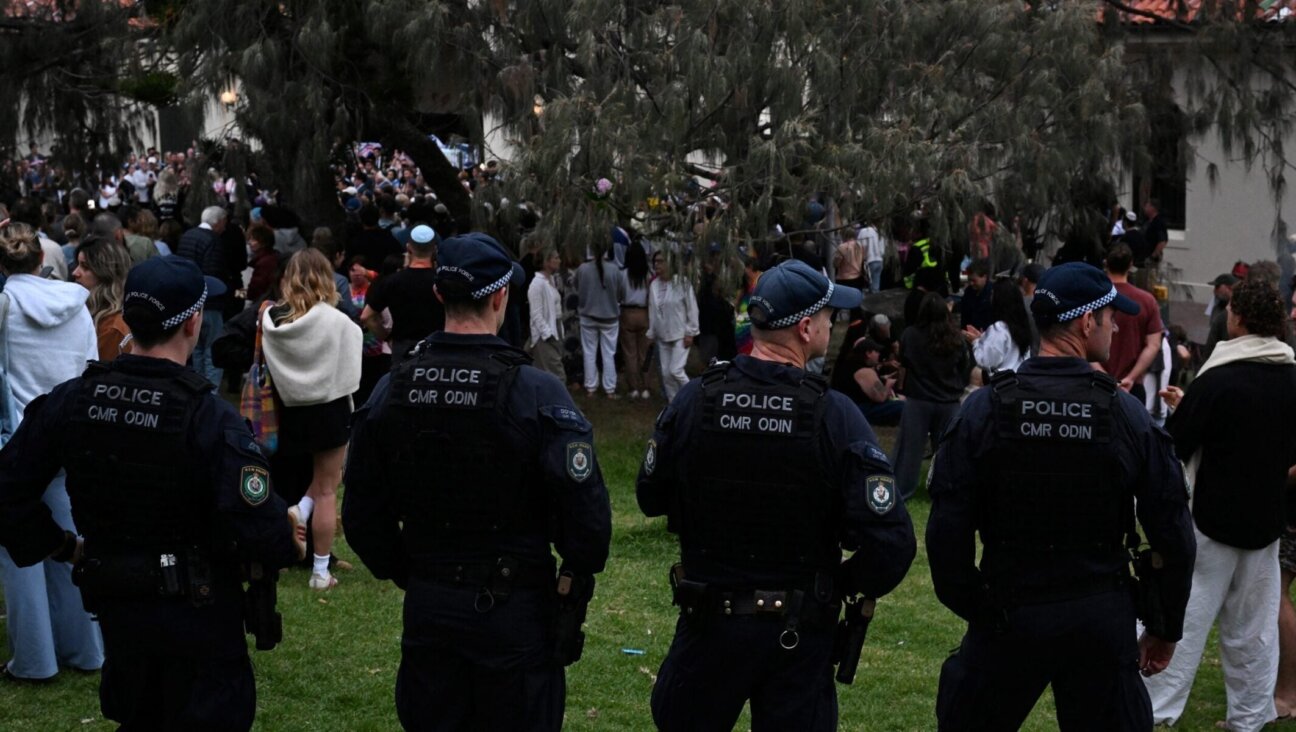Palestinian School Demolitions Are Destroying Israel’s Future

Image by Getty Images
My parents had always taught me that education was a Jewish value. As a child, their insistence worked a little too well — I could never sleep the night before the first day of school. My notebooks were already in my backpack, and I was so excited to learn.
This summer, I met Palestinian mothers who organized to build a school and create that same feeling for their children. But the building was demolished the night before the first day of class.
Their village, Jub a-Dhib, located in Area C of the West Bank, is under full Israeli civil and military control. A few years ago, frustrated by the Civil Administration’s failure to provide them with water and electricity, a group of mothers from the village formed a Women’s Committee to take matters into their own hands. They showed me the school they had successfully raised funds for and told me, proudly, that their young children would no longer have to walk to neighboring villages to get an education. For Palestinian children in Area C, a long walk to school often means facing settler harassment from outposts located along the way.
Then this past Tuesday August 22, 2017, on the evening before its grand opening and the start of the Palestinian school year, the Israeli Civil Administration arrived in Jub a-Dhib and destroyed the newly built school. They declared the area to be a closed military zone and used stun grenades to hold back members of the village.
This is not an isolated incident—it is part of a recent spate of demolitions targeting Palestinian schools in Area C. On August 21, in Jabal al-Baba, northeast of Jerusalem, Civil Administration personnel dismantled a kindergarten and confiscated desks, chairs, cabinets and a blackboard. In Abu a-Nuwar, on August 9, they confiscated solar panels that provided the village school with electricity.
Why demolish schools? The reasons given are that the structures are built illegally, without permits, and are funded by the European Union—all of which are true. However, it is nearly impossible for Palestinians to build legally in the villages in which they live, including on their own private lands. The Civil Administration has only approved 16 plans out of the 180 Palestinian villages in Area C.
These demolitions and confiscations make it nearly impossible to raise children in the villages. Families are forced to relocate to concentrated Palestinian population centers in Area A, freeing up more land in Area C—60% of the West Bank—for Israeli settlements. This is not the work of a few radical settlers—it is a slow, systematic, state-sponsored process of de facto annexation.
This pattern should alarm supporters of a two-state solution and a Jewish and democratic future for Israel. And the demolition orders are increasing—274 homes were demolished in 2016, at least 100 more than any previous year since 2006.
We know, however, that these demolitions are not inevitable. Due in part to the diligent work of many Israeli NGOs, each demolition usually comes with a court fight. Further, international attention can prevent the demolition of Palestinian villages.
That is why we cannot give up. This summer, I met countless progressive Israelis who were organizing to fight for a better future for their country — a peaceful future, one in which Israelis and Palestinians could live with dignity. Further demolitions in Area C build ill-will and create facts on the ground that take us further and further away from the future that pro-Israel, pro-peace activists are fighting for.
This school year, J Street U will advocate against demolitions of the kind that prevent the women of Jub a-Dhib from securing a better future for their children. We will not wait for our leaders and politicians to continue to waffle as the prospects for a two-state solution seem ever more distant and “Greater Israel” slowly becomes a reality.
As J Street U students return to school over the next few weeks, we will have the luxury of time and resources to read, study, and think—including about how to end this seemingly intractable conflict. It is both cruel and counterproductive for Israel to prevent Palestinian children from doing the same.
But the community of Jub a-Dhib is resilient. The morning after their school was taken, the children showed up in their uniforms anyway, and sang songs on the empty concrete block. For our part, we will advocate to oppose demolitions in Jub a-Dhib, replace the desks in Jabal al-Baba, and return the solar panels in Abu al-Nawar. At the start of the new school year, we are calling on our Jewish community—in the name of conscience, and of Israel’s future—to join us.

















